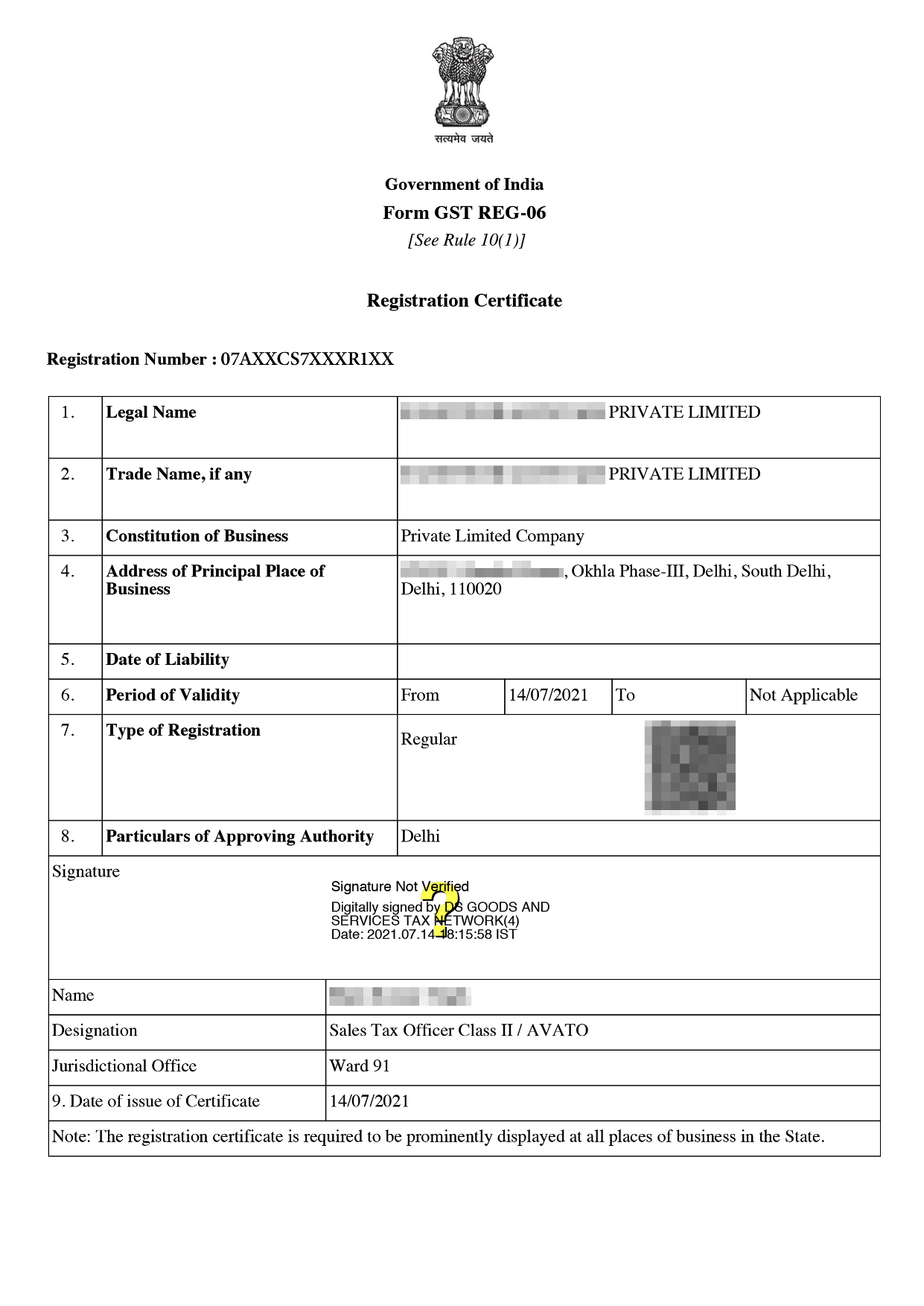
Updated on April 08, 2025 05:42:20 PM
GST Return is a document that contains details about the output, input, output tax, and input tax. GST Returns are filled by traders, companies, individuals, and organizations. The tax liability is determined upon return filing and must be paid to the appropriate authority. There are many benefits of GST Return filing such as Promote Compliance, Claiming Input Tax Credit, Avoid late fees, Avoid GST Cancellation, Performance of business tracked, and many others. There are many returns that need to be filled.
Get effortless and smooth GST Return filing with Professional Utilities
GST Registration Certificate Sample

A GST-registered taxpayer (each GSTIN) is obliged to submit a document to the tax administration authorities called a GST return, It contains information about all of their income, sales, and/or costs, as well as their purchases. Tax authorities use this to determine net tax liability.

GST returns are filed annually, quarterly, or monthly. Various types of GST returns, dates, and who is liable to file the return as mentioned below -
GST Registration is compulsory tax filing for those who become liable to pay taxes.
Professional Utilitieshelps to get GST Registration at Rs. 1499/-.
Steps to fill the GST Return are mentioned below -
There are different types of GST Rates as mentioned below -
Regular businesses earning a turnover of more than Rs 5 Crores - As to file Two monthly returns and One Annual Return. Total Return comes out to be 25 returns in a year.
Regular businesses have a turnover of more than 5 crores under the QRMP scheme. To file 4 GSTR-1 and GSTR-3B and one annual return. The total return comes out to be nine years.
There are Seven types of the taxpayer as mentioned below -
Failure to file the GST Return can result in penalties like late fee and interest. 18% outstanding tax. Under CGST and SGST Late fee is 100 paid per day for both and the total comes to 200 per day.
There are many benefits of the GST return as mentioned below -
Claiming Input Tax Credit - By filing a return on time they can claim the input tax credit which reduces the tax liability of the taxpayer.
Avoid late fees - With the filing of the GST Return late fee of 100 per day and a maximum of 5000 can be adjusted in Input Tax Credit.
Avoid GST Cancellation - Cancellation of the GST Registration can be avoided by filling out the GST Return.
Performance of business is tracked - The performance of the business can be tracked by filling out GST Return. With the filing of the return summary of sales and purchases can be made for a specific period.
Credibility increases - Regular filing of the return helps in getting credit facilities and loans from financial institutions. This all helps in increasing the creditworthiness of the businesses.
Promote Compliance - Compiling with the law is done by Filling out the GST. This ensures the protection of the business from the legal issue in the future.
Conclusion
The revenue you earn from conducting business transactions must be reported in your GST return as a taxpayer, business owner, or any other eligible person. There are many benefits to filling out the GST return like GST compliance, claiming Input Tax Credit, avoiding cancellation of GST Registration, and many others. To avoid penalties GST returns need to be filled on the due date and claim the input tax credit.
At Professional Utilities, we leverage our industry knowledge and expertise to help businesses navigate complex regulations, minimize risks, and optimize operations for maximum efficiency and profitability.






Frequently Asked Questions
200 rupees per day, or Rs. 100 under the CGST and Rs. 100 under the SGST. A yearly interest rate of 18% must be paid in addition to the late fee.
While income tax is a direct tax paid on the income received by people and businesses, GST (products and Services Tax) is an indirect tax imposed on the provision of products and services.
The GSTR-2A is an automatically filled, read-only document that offers a thorough account of purchases. On the other side, the GST site generates GSTR-2B, which is a condensed version of the input tax credit that is accessible to taxpayers for a certain tax period.
If a person's total annual revenue exceeds Rs. 20 lakh (for states in the normal category) or Rs. 10 lakh (for states in the special category), they must register.
Speak Directly to our Expert Today

Reliable

Affordable

Assured